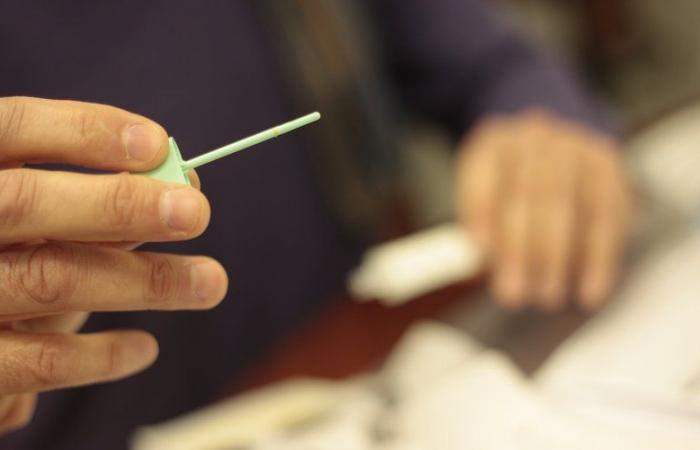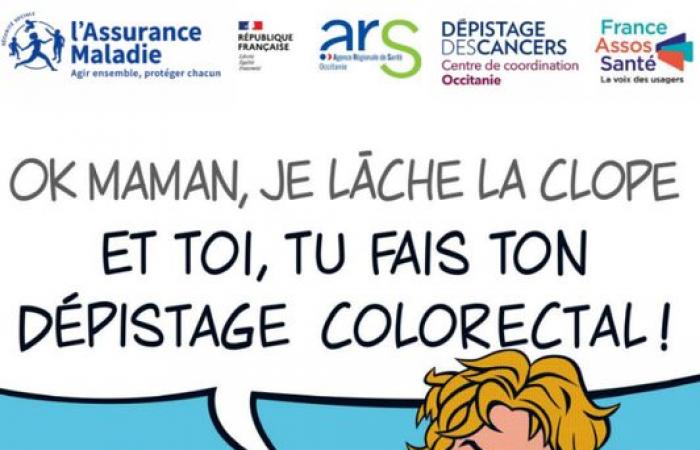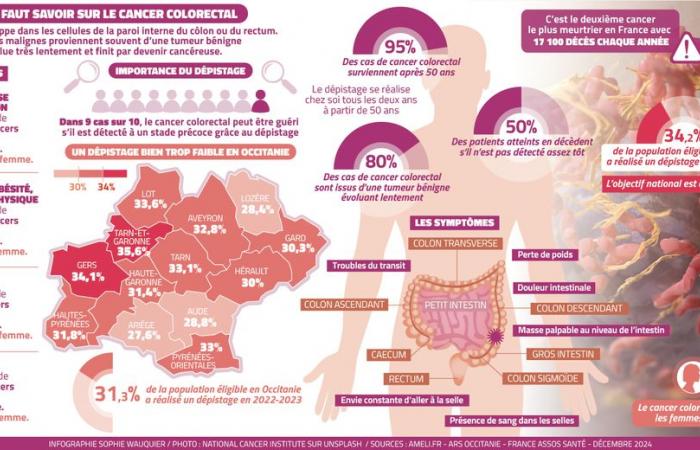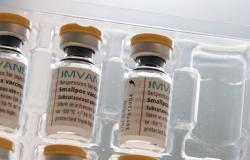“Ok mom, I’ll put down the cigarette and you, you do your colorectal screening”: faced with the very poor figures for colorectal cancer screening in Occitania, barely one in three people between 50 and 74 years old, Health Insurance is initiating a new regional awareness campaign, focused on the intergenerational bond.
Emmanuelle Samalin is a hepato-gastroenterologist at ICM Val d’Aurelle in Montpellier, specializing in medical oncology.
Midi Libre – JEAN MICHEL MART
Why is there so little uptake in colorectal cancer screening?
For fear of a positive result, I think, and because this test requires the examination of stools, it remains complicated even though there is nothing difficult to do, it is not dirty. Breast cancer screening is easier.
Maybe we’re also bad, that we don’t communicate enough, even if I have the impression that we’ve been pushing hard in recent years.
It should be remembered that this screening is for the general population, that is to say people who are asymptomatic, without identified risk factors. There is very little chance of discovering cancer.
For screening to have value, there must be at least 45% participation, we are far below.
DR
Barely 30%…
In France, it’s 38%, Hérault, it’s 34%. It’s still better if we can anticipate, because colorectal cancer is the second most deadly cancer.
With what results?
In 96% of cases, the screening result is normal. When the test is positive, there is a 5 in 10 chance that there will be nothing at all at the colonoscopy, a 3 to 4 in 10 chance that there will be a benign polyp and a 1 in 10 chance of finding cancer. And in this case, this cancer will be cured in 90% of cases.
It’s still extremely reassuring to say that we can detect early, that’s the point of screening!
By definition, when we go for screening, we take the risk that the result will be positive. What we need to change in our minds is that we give ourselves the chance of early detection, and therefore of a cure. If we bury our heads in the sand and wait for symptoms, it may be too late.
“We need public messengers, celebrities”
Is there much better around us, in Europe?
There are perhaps European countries where things are better organized, in registers, population studies… in Sweden, for example. But we can still say that things are improving in France. For five years, the participation rate has increased but we really need to do better. 50-74 years old is “the” target, this is when the population is most affected. It really needs to get into people’s minds and maybe we need public messengers, celebrities…
As soon as a public figure takes up a question that is of a private nature, things seem simpler, more human, we touch people. When it’s a doctor, or someone who represents the law, the authority, it’s more complicated.
What is the process: test, then if positive, colonoscopy, and if there are polyps, must be removed during the procedure, and treatment initiated if cancer?
Exactly. Polyps are often removed during endoscopy. If they are too big or if there is a cancerous transformation, it will be surgery instead… taking care to eliminate the metastases.
After this surgical procedure, either there is monitoring, if there is no lymph node involvement or risk of recurrence, or we offer a so-called adjuvant treatment, chemotherapy, to secure the situation.
In these curative cancer situations, there are specificities, depending on whether you have a tumor located in the colon or the rectum. The colon, we rather do surgery, and after treatment if the nodes are positive. For the rectum, there will be a lot of treatments before surgery, radiotherapy, chemotherapy, etc. and we have a very small population of patients, which will represent perhaps 15% of colorectal cancers, who will be eligible for immunotherapy. . It is not a routine treatment, but we have the possibility of sparing patients a surgical procedure.
We can thus have patients in complete remission.
Is it recent?
Yes, very encouraging studies have been coming out for two or three years, but it remains in the realm of therapeutic trials and clinical research.
On the other hand, it is authorized for metastatic cancers, and we also have complete remissions. There is hope, and it is our role to pass it on, because there is always this collective unconscious of the word cancer associated with death. We heal. We do not want to communicate fear.
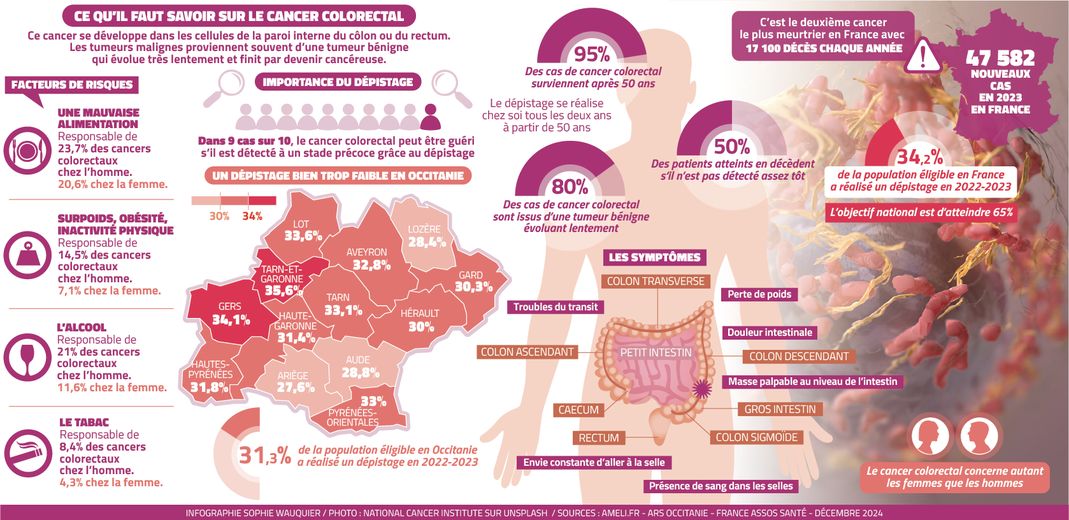
Midi Libre – SOPHIE WAUQUIER
“There are colorectal cancers”
Once again, it is through immunotherapy that much progress is coming…
Yes, and new targeted therapies, depending on the molecular profile of patients, allow us to produce personalized medicine with a chemotherapy base.
There is great progress. We even have innovative diagnostic techniques such as circulating tumor DNA which allows us to have a molecular profile through a blood test. This all happens very quickly, even if in practice it is still anecdotal.
You say that there are colorectal cancers…
There are so many different situations that it is complicated to make generalizations. There are colorectal cancers, depending on the situation, stage, and molecular abnormalities.
The consultations are sometimes complicated because patients have inquired about the latest therapy, the one that is the most talked about. There can be disappointment as we simply try to adapt as best we can to the pathology.

